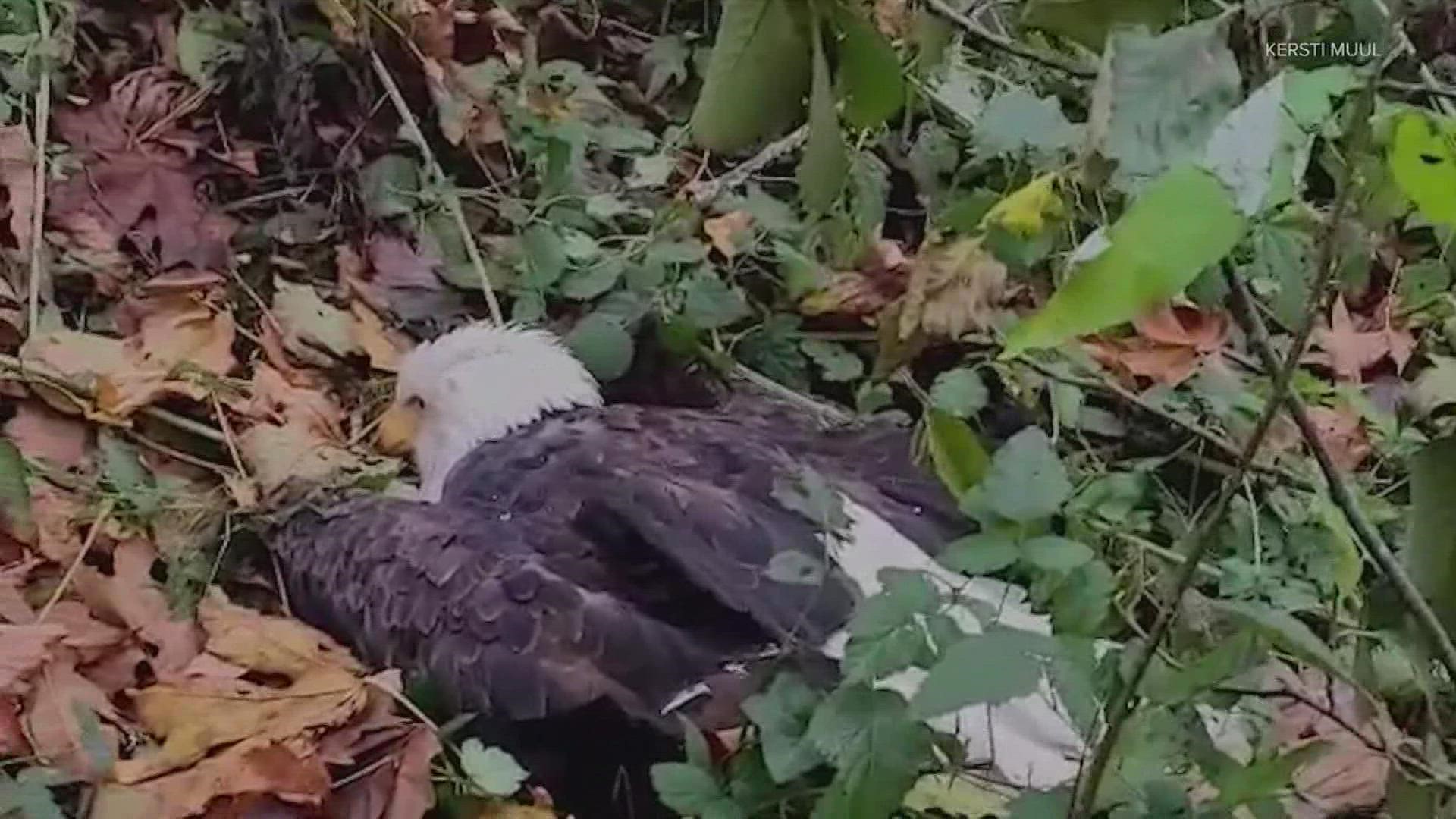SEATTLE — Washington state officials and conservationists are warning of cases of avian influenza located in West Seattle's Lincoln Park and across the state, asking people to watch for symptoms and report them in hopes of stopping the spread.
"It got quiet in the summer and then during migration - September, October - we got a resurgence of it," urban conservation specialist Kersti Muul said.
Muul volunteers her time to help sick and wounded birds and has been called out to several suspected cases of bird flu in recent weeks, including a bald eagle in Lincoln Park.
Avian influenza, also known as bird flu, includes infections from multiple strains of viruses. They are classified into low pathogenic avian influenza (LPAI), which causes either no signs or mild signs of disease, and highly pathogenic avian influenza (HPAI), which is more likely to sicken and kill birds.
In May of 2022, the Washington Department of Agriculture confirmed the presence of avian influenza in several backyard bird flocks. The Washington Department of Fish and Wildlife (WDFW) has since confirmed the disease in wild birds. A dashboard of cases can be found here.
WDFW has confirmed at least 18 cases of HPAI in bald eagles, but reports there are likely more. Once the department knows one bird has been confirmed with avian influenza in an area, they mark that area as harboring infections and do not test more birds in the same vicinity. In addition, birds in untested areas may die from the illness before being found and tested.
But bald eagles are just one in a number of bird species in which HPAI has been detected. Whatcom County recently saw a die-off in geese.
"That die-off was 400 birds, which sounds like a large number but overall population impact isn't huge at this point, but those reports help us understand how it's spreading, how it's impacting populations, all kinds of data like that," WDFW spokesperson Staci Lehman said.
WDFW said the illness is natural, but does not occur every year; the last recorded outbreak ran from 2014-2015. People do not need to panic, but should take it seriously, according to WDFW. The departments expects the number of cases may decrease as water supply builds up and birds have more room to space out.
Symptoms of HPAI include inability to move as normal, diarrhea, nasal secretions, lack of hesitance when approached by humans and other unusual behavior. If you suspect a bird may have HPAI, report it to WDFW here.
WDFW also asks that hunters clean their materials when moving from location to location and clean their boots when going home.
Muul said people can also contact her for help with hurt birds here: kersti.e.muul@gmail.com, along with Animal Control.

